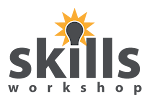 Reflect magazine is published three times a year and is always a good read. The latest July 08 issue was delivered to my house about a month ago but I've only just finished browsing.
Reflect magazine is published three times a year and is always a good read. The latest July 08 issue was delivered to my house about a month ago but I've only just finished browsing. There are 17 articles. Seven are grouped together as a special report on family and community learning; the remainder range from 'E-learning in Uganda' to a well argued, down-to-earth plea from a Skills for Life tutor (more on this in a later post).

This is a VERY interesting question and the answers might not be what you're expecting...
To be honest, I found it very hard to tease out exactly what the results were but here's my nutshell version:
- Better qualified (generic - e.g. Cert Ed, PGCE) SfL teachers enable learners to make more progress.
- Numeracy learners make more progress if their teacher also has A level mathematics or beyond. In contrast, the progress of Literacy and ESOL learners is not markedly improved if their teacher has an English qualification beyond GCSE.
- Students’ enjoyment of numeracy is higher if the teacher also has a maths degree or postgraduate qualification but beware: these teachers are also related to a decrease in learners' confidence about numeracy skills.
This doesn’t surprise me - I've met high level mathematicians who just cannot get back to ground level (but I’ve met others who can and do!). As a test try this: ask someone with a maths PhD what a fraction is (I’ve tried this myself with someone I know well…).
However, I am rather confused by the results of this research. I would have thought that confidence and progress in numeracy work hand in hand so am not sure what the ideal is here…
Maybe a teacher with AS level maths – who knows!
I should point out that this research is ongoing and the authors, Olga Cara and Augustin de Coulon, welcome feedback and comments.
You can read Reflect online at the NRDC (National Research and Development Centre for Adult Literacy and Numeracy) site http://www.nrdc.org.uk/
(Select the 'publications' tab). The magazine can be read as individual on-line articles or as a single, large PDF file. You can also subscribe and receive free printed versions.











